Five Christmas Gifts that Keep on Giving
by Rob Dietz
‘Tis the season for gift giving, and if mainstream economists are right, then the best possible gifts are the ones that contribute the most to economic growth. In recent years, despite financial shenanigans and outsized stimulus spending, GDP growth has remained below 3% per year in the U.S. As the environmental and social limits to growth have asserted themselves, consumption of exponentially more stuff has become exponentially more difficult. That’s why you might hear an economist or a politician say, “Ask not what economic growth can do for you, but what you can do for economic growth.” Fortunately there are plenty of presents you can buy right now in the 21st century that honor such 20th-century thinking. Here’s a list of five gifts that not only increase GDP directly, but also help indoctrinate the lucky recipients into the fossil-fueled, high-financed consumerist culture. Get yours while you can!
1. The holy trinity of lawn care. Why use a rake when you can crank up the decibels and the emissions? Why use a scythe when you can possess extreme RPMs of plant-shredding power? Why use a hoe when you can crush weeds into oblivion with a toxic cocktail? Any gardener will appreciate the power of this three-tool multi-pack: a gas-powered leaf blower, string trimmer weedwacker, and backpack pesticide sprayer. Imagine the gardener’s delight as he or she wages chemical and mechanical warfare on the landscape. Nature never looks better than when perfectly trimmed, blown, and sprayed. But wait, there’s more! These tools are sure to eliminate diversity from the yard and prevent it from functioning like an unwanted, unruly ecosystem. Oh what a feeling to control nature!
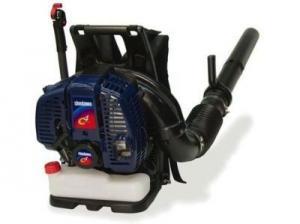 |
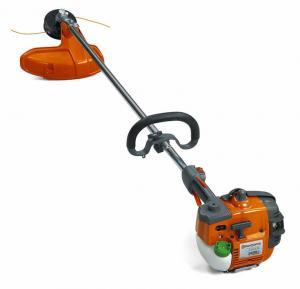 |
 |
2. The dynamic duo of board games. Children of all ages can learn how the world works by using any means necessary to trounce the competition. No games teach more valuable lessons than the all-time classics Monopoly and Risk. The goal of each is straightforward, just like an uber-capitalist, imperialistic economy — amass all the spoils by vanquishing your opponents. These games have remained popular for decades because exploitation never goes out of style. For an exciting twist on standard Monopoly, try the National Parks Edition. You could end up owning Yellowstone, Yosemite, the Great Smoky Mountains, and eventually all the National Parks (privatizing the Parks would surely add to GDP). Then you can charge such high entry fees that you end up owning the other players too! What could be more fun than owning everything and wiping out your friends and family? And if these two classics don’t satisfy your hunger, try to secure a copy of this rare board game.
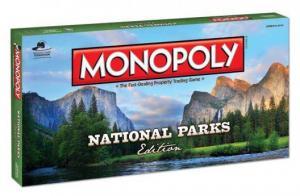 |
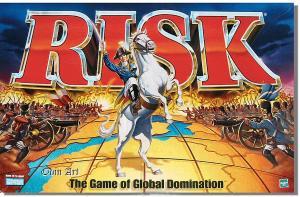 |
3. Magazines that spread affluenza. Not everyone can live life as a super-rich conspicuous consumer, sipping Cristal on the deck of a gold-plated yacht on the way to a private island in the South Pacific. But everyone can read and dream about it! Fill your loved-ones’ magazine racks with the likes of Scene, Hamptons, and Bloomberg Pursuits. They can spend hour after hour learning the right clothes to wear, the right cars to drive, and the right handbags to carry. If you really want to do your part for GDP, you might consider delivering the first few issues of these subscriptions in a diamond-encrusted magazine rack.
 |
 |
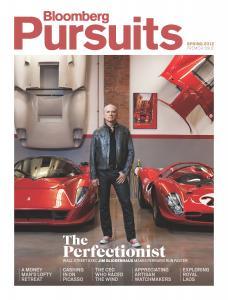 |
4. Plastic toys that promote proper values. A stunning variety of plastic playthings populate toy store shelves these days. These two toys sport not only a hefty price tag, but also an agenda for joining the fossil fuel frenzy. With a Playmobil Cargo Ship, kids can pretend to burn obscene quantities of fuel while importing cheap goods from China and exporting recyclables and garbage from the U.S. And speaking of burning obscene quantities of fuel, children will love emulating that behavior by rolling around in a motorized toy Hummer. As a bonus, driving the Hummer will help kids avoid burning their own calories — a good start on a lifetime of health problems and medical expenses that will further add to GDP!
 |
 |
5. Junior bank account. Open a starter account for that special niece or nephew at the Bank of America, Wells Fargo, Citigroup, or any other too-big-to-fail (aka unsustainably large) corporate bank that was bailed out in the financial meltdown. Children are sure to take delight in having their savings invested in junk mortgages, collateralized debt obligations, and credit default swaps. It’s never too early to learn the lesson that you can “earn” money by doing nothing.
 Photo by Alex Proimos, Wikimedia Commons |
 Photo by Sara Goth,Wikimedia Commons |
 Photo by Lite, Wikimedia Commons |
During this holiday season, the neoclassical economists want you to get out there and grow the GDP. On the twelfth day of Christmas, my skewed gov gave to me EXPANDING GDP!
—
If, for some reason, you don’t feel like following the advice of neoclassical economists, then try giving the gift of time — make time for genuine experiences with your friends and family. Or make a donation to a favorite nonprofit in someone’s name. If you feel the need to buy a product, how about a book that describes the needed economic changes?
Click here to receive the Daly News in your email inbox.
 Rob Dietz brings a fresh perspective to the discussion of economics and environmental sustainability. His diverse background in economics, environmental science and engineering, and conservation biology (plus his work in the public, private, and nonprofit sectors) has given him an unusual ability to connect the dots when it comes to the topic of sustainability. Rob is the author, with Dan O’Neill, of Enough Is Enough: Building a Sustainable Economy in a World of Finite Resources.
Rob Dietz brings a fresh perspective to the discussion of economics and environmental sustainability. His diverse background in economics, environmental science and engineering, and conservation biology (plus his work in the public, private, and nonprofit sectors) has given him an unusual ability to connect the dots when it comes to the topic of sustainability. Rob is the author, with Dan O’Neill, of Enough Is Enough: Building a Sustainable Economy in a World of Finite Resources.







Saucy.
I misread the title.
I thought this was going to show me good ideas for gifts for children.
I don’t like children and I hate buying more shit but…tis the season.
I have 6 neices/nephews.
I was thinking condoms and birth control pills but they’re a little young ( all under 12).
Anyway, interesting article.
@Darren: “I was thinking condoms and birth control pills but they’re a little young ( all under 12).Anyway, interesting article.”
LOL!!! What a great idea for a gift for teens and 20-somethings!
Darren, I nominate you for the Enlightened Scrooge Award for 2013!!!
Happy Holidays (in spite of all of the crap). :-)
P.S. The hyper-commercialization of the holidays is a function of the deindustrialization, hyper-financialization, globalization, and feminization of the economy. While it’s totally not PC to say so, men wouldn’t even think of buying all the crap women are socialized from birth to want and to spend their income and someone else’s income on the crap.
Love this article – it would go good with some anti-consumer holiday ideas… It would be interesting to see a “how to do holidays without buying stuff you don’t need” article.
I would also humbly suggest that men might buy less crap because when they buy it, it’s not crap, it’s “stuff” (I’m not sure how George Carlin put it…).
Really funny article! I hate the tacky over-commercialization of Christmas, I think it detracts from the genuine pleasure of gift-giving and family time.
@BC – Feminization of the economy? Excuse me but it’s not acceptable to blame women for the monstrosity that is free market capitalism and consumerism gone wild. If it was acceptable to blame one gender, then I could point out that the vast majority of top bankers, CEOs and politicians that have orchestrated such an economy are in fact men. But that would be irrelevant and sexist, seeing as it’s these people’s views that matter, not their gender. In my experience men and women both buy a lot of crap, and it has nothing to do with gender.